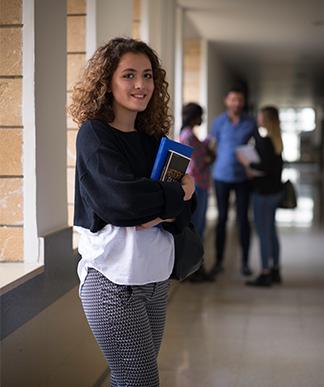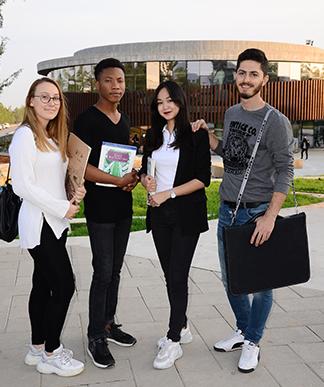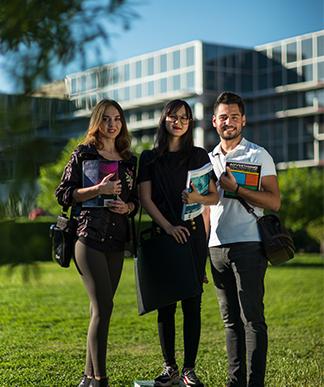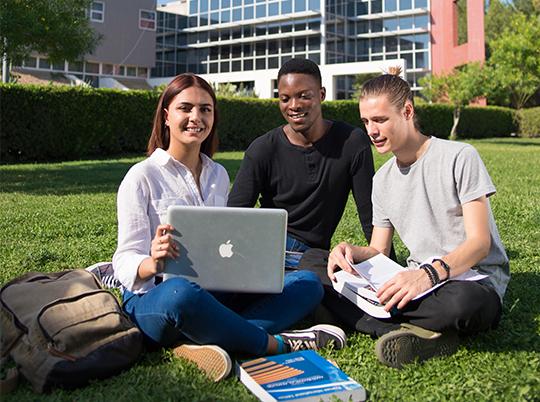Plant Sciences and Technologies (MSc)



About the Program
The aim of this particular program is to guide and educate agriculture and basic science graduates to become specialized in selected areas; direct them towards original research; and assist them in their careers. Furthermore, the program also aims to encourage its students to build strong relations with internationally known colleagues from their field. The main goal of the program is to educate and guide the students to get ready to use high technologies in order to adapt, select or breed economically important and desired new plant cultivars from various floras and in well-equipped laboratories as well. Ultimate targets are to release such plant cultivars adaptable to unavailable ecologies and environments such as drought, salinity, diseases and insect damages. The visions of this program are to educate and guide the graduates to think and collaborate rationally and proactively evaluating all kinds of agricultural values, transferring environmentally-friendly production techniques to practice; contribute to higher quality and more efficient production under international regulations and standards; create added values to commodities.
Education Opportunities
The program courses are offered by senior lecturers all of whom are experts in their own fields. During the period of research and thesis preparation, students can benefit from the university library hosting periodicals and indefinite publications, electronic periodicals, digital image files from both local and international publications. For the study of the land required for the thesis, the university's agricultural areas and greenhouses can be utilized. There are also physics, biochemistry, analytical chemistry, computer laboratories and central laboratories available at the university to aid the successful completion of the program.

Career Areas
Students who graduate from the Department of Plant Science and Technology will expand their worldviews, international networks, have a wider vision, and will be introduced to their professional careers at the same time. Some of the employment areas include;
- Ministry of Agriculture and Forestry
- Ministry of Environment and Urban
- Ministry of National Education
- Research Institutes
- Municipalities
- Universities
- International agricultural organizations
- Freelance consultant
- Establish their own companies
Contact
Institute of Graduate Studies and Research
Graduate Sciences and Education Center, GE106
Tel: +90 392 671 1111 Extension: 2776
Institute E-mail: ciu-institute@ciu.edu.tr
Compulsory Courses
First Semester
RESEARCH TECHNIQUES IN AGRICULTURE
Course code
PSCT501Credit
3Theoretical
3Practical
0Ects
SEÇMELI
Course code
PSCT5X1Credit
3Theoretical
3Practical
0Ects
SEÇMELI
Course code
PSCT5X2Credit
3Theoretical
3Practical
0Ects
STATISTICS
Course code
STAT502Credit
3Theoretical
3Practical
0Ects
Second Semester
THESIS
Course code
PSCT500Credit
0Theoretical
0Practical
0Ects
LABORATORY TECHNIQUES
Course code
PSCT502Credit
3Theoretical
1Practical
4Ects
8SEMINAR
Course code
PSCT580Credit
0Theoretical
0Practical
0Ects
4SEÇMELI
Course code
PSCT5X3Credit
3Theoretical
3Practical
0Ects
SEÇMELI
Course code
PSCT5X4Credit
3Theoretical
3Practical
0Ects
Elective Courses
Students who are interested in pursuing advanced graduate studies leading to a master’s, doctoral degree, or professional doctorate degree for the Fall and Spring semesters every year. Applicants can directly apply online to our graduate programs using the application portal.
TR Applicants- Required documents:
- Bachelor’s Degree Diploma
- Bachelor’s Degree transcripts for each completed academic term/year.
- Valid ALES result document (must not exceed 5 years),
- Documents to prove English proficiency for English language departments,
- Scanned copy of passport or identity card.
Click for detailed admission requirements information.
TRNC Applicants- Required documents:
- Bachelor’s Degree Diploma
- Bachelor’s Degree transcripts for each completed academic term/year.
- Documents to prove English proficiency for English language departments,
- Scanned copy of passport or identity card.
Click for detailed admission requirements information.
Students who are interested in pursuing advanced graduate studies leading to a master’s, doctoral degree, or professional doctorate degree for the Fall and Spring semesters every year. Applicants can directly apply online to our graduate programs using the application portal.
International Applicants- Required documents:
- Bachelor’s Degree Diploma
- Bachelor’s Degree transcripts for each completed academic term/year.
- Evidence of English Language competence: TOEFL (65 IBT) or IELTS (5.5). Students without these documents will take the CIU English proficiency exam on campus following arrival.
- Scanned copy of international passport/birth certificate
- CV
- Fully completed and signed CIU Rules and Regulations document (which can be downloaded during the online application)
Click for detailed admission requirements information.
Cyprus International University provides academic scholarships for its students as an incentive for success, with most students benefiting from 50%, 75% or 100% scholarships or discounted tuition fees. Click for more information.
| Fee per course | € 350,00 |
| Fee for thesis | € 1.050,00 |
| Fee for seminar | € 120,00 |
| Scientific Foundation per course | € 150,00 |
| Annual Registration Fee | € 295,00 |
| VAT Exc. |